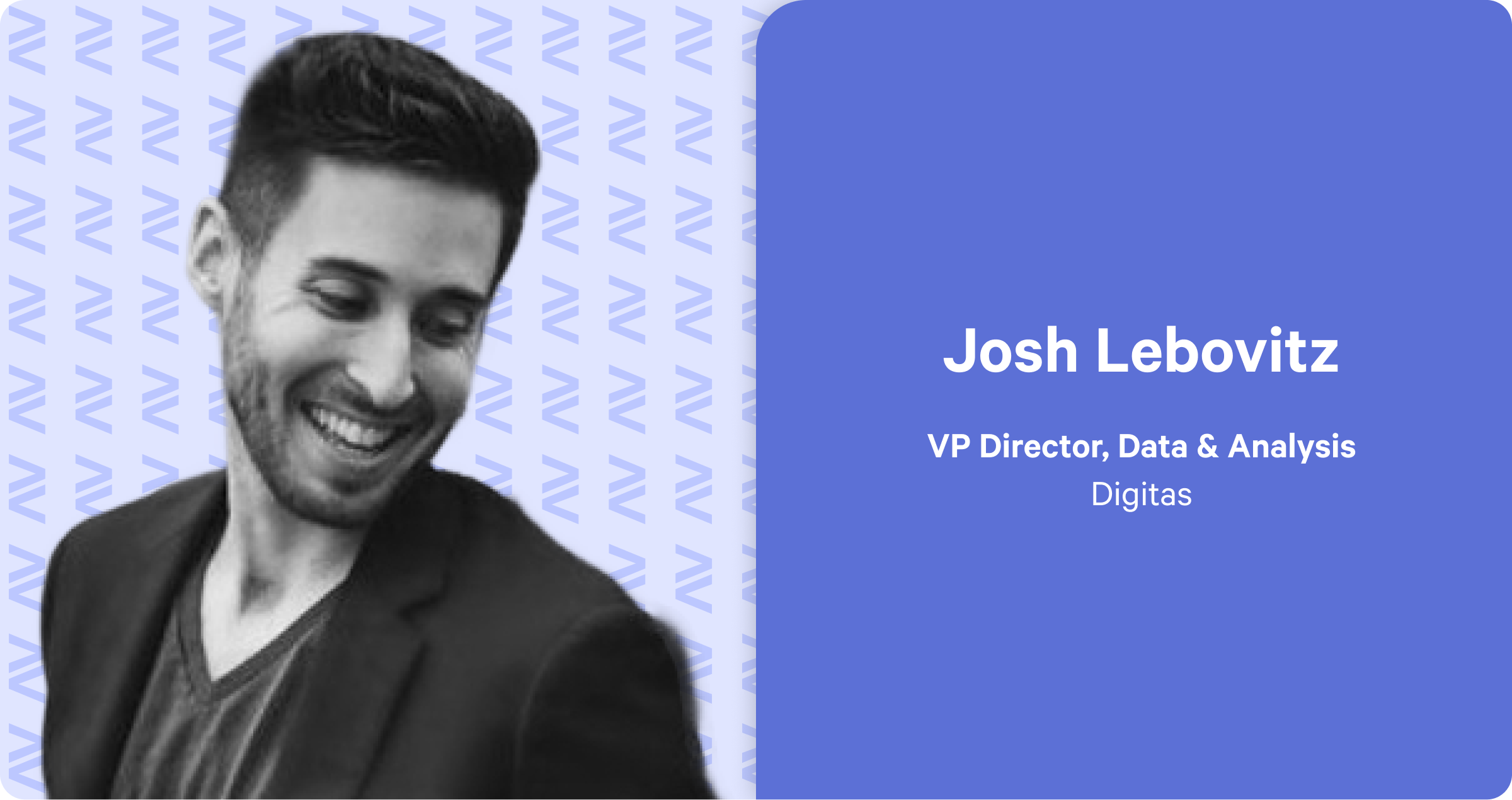$(function() {
$('inputfield').on('keypress', function(e){
if(e.keyCode == '13'){
// enter pressed
e.preventDefault();
$('.search-button').trigger('click');
}
});
});

AI is a natural fit in the world of analytics and measurement. From powering sales prediction algorithms to simulating consumer focus groups, it’s opening up worlds of possibilities for marketers who deal in data.
In this installment of How AI Will Change… we talk to Josh Lebovitz, Vice President Director of Data and Analysis at Digitas North America, where he leads strategy across media, creative, and analytics to drive measurable growth for clients. With deep expertise in audience intelligence and AI-powered insights, Josh helps brands connect data to decisions in real time. He’s passionate about evolving how marketers measure impact and build momentum across the full customer journey.
AI has transformed how we approach data and analysis on a daily basis at Digitas. What used to be manual, time-intensive processes like segmentation, forecasting, and stitching together attribution from various sources are now accelerated by machine learning models that surface insights in real time. We’ve moved from being data managers to strategic enablers. We connect insights across teams faster than ever to drive decisions and business outcomes for our clients. It’s not just about automation; it’s about amplification.
Two years ago, performance was often measured in silos - clicks, impressions, conversions. Today, AI enables us to look across the entire consumer journey. For example, we’ve built a proprietary AI tool that decodes brand connection using six key consumer signals from search behavior to sentiment, giving us a more holistic view of impact. Advertisers are now thinking in terms of networked experiences, not just isolated metrics, and we can do that faster than ever with AI.
KPIs should reflect how your audience engages with your brand and category. Traditional KPIs are often proxies for engagement, not true indicators of value or momentum. CTR doesn’t tell you if someone actually considered your brand. Last-touch attribution ignores the complexity of multi-channel influence. We triangulate media, creative, behaviors, perceptions, and sales impact through our AI solutions to spotlight why we’re building momentum, not just what happened, so we can make decisions quickly and confidently.
AI-powered models help isolate variables and simulate control groups, which enables more precise measurement of incremental lift and causal impact. But human intuition remains essential, especially in interpreting nuance and context. In complex, omnichannel environments, AI brings scale and speed to the process, while human insight ensures we’re asking the right questions and driving toward meaningful outcomes. It’s important to have that balance.
AI and sales data are transforming planning from a static exercise into a dynamic, always-on capability. Again, KPIs should reflect how people actually engage with your brand and category, and planning should be based on those learnings. By layering real-time sales data with external signals like market trends, consumer behavior, and even inputs like weather or shelf intelligence signals, AI helps us connect an array of inputs to tangible business outcomes. This allows us to understand not just what’s happening, but why, so we can optimize plans continuously and make faster, more confident decisions that drive real momentum.
Search is more critical than ever, but it’s evolving. Brands need to think beyond landing pages and consider how people engage with their category and talk about their brand across the digital ecosystem. Understanding the questions your audience is asking and how they make decisions helps inform the right content strategy. That content then fuels conversations and visibility, making it more likely to be surfaced in AI-generated summaries and search experiences.
AI is great at pattern recognition, but it struggles with nuance, ethics, and empathy. Human insight is still essential for interpreting cultural context, crafting emotionally resonant stories, and making judgment calls. We believe in a hybrid model where humans lead the narrative while AI organizes ideas and augments along the way.
Nothing beats talking directly to your audience but doing it formally can be costly and time-consuming. Digitas has built countless AI agents using behavioral, mindset, and transactional datasets from Epsilon, allowing clients to quickly learn from their audience by asking questions, testing creative ideas, or even hosting virtual AI agent roundtables across their audience segments. It’s a faster, scalable way to spark conversations and uncover insights that are otherwise hard to reach, and we’re excited to keep evolving these environments to help clients learn even faster.